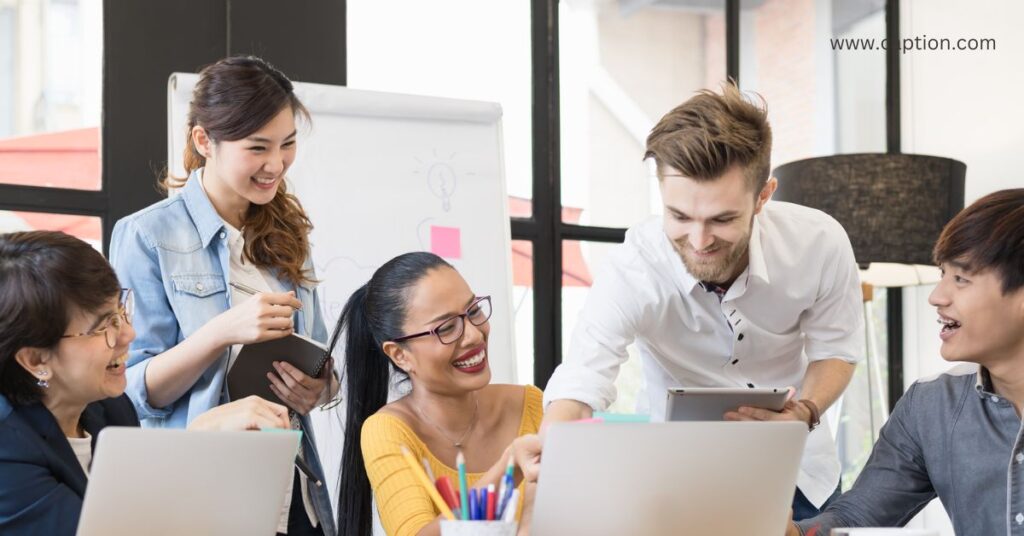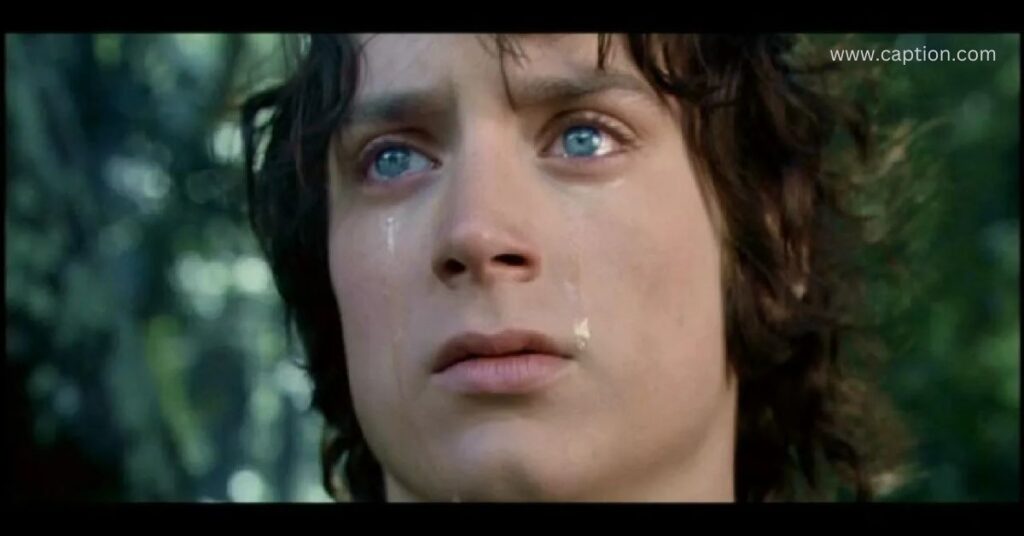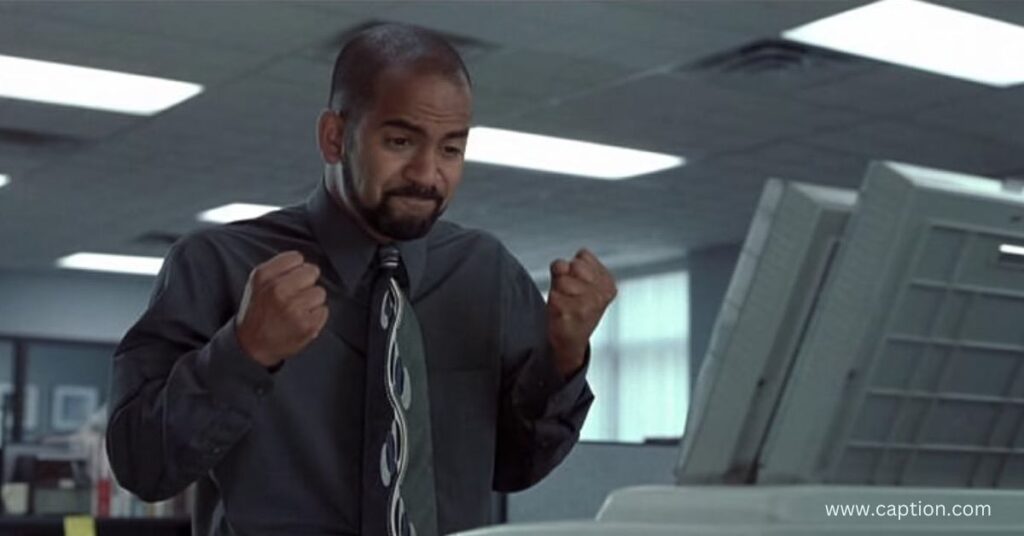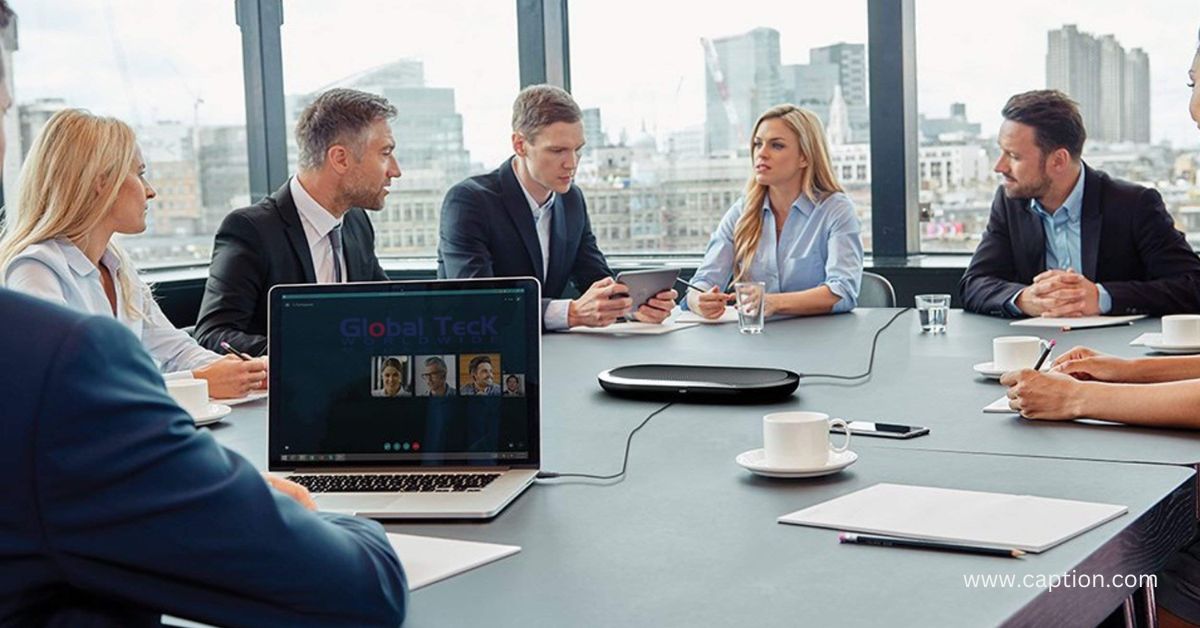Expressing gratitude after meeting someone is essential in both professional and social settings. While the phrase “It was a pleasure meeting you” is commonly used, diversifying your language can make your interactions more memorable. This article explores ten alternative expressions, providing context and examples for each.
I Enjoyed Our Meeting

Using the phrase “I enjoyed our meeting” is a simple yet effective way to show appreciation after spending time with someone — especially in a professional context. It’s one of the most natural and adaptable alternatives to saying “It was a pleasure meeting you.”
Why This Phrase Works So Well
This expression hits the right balance between warmth and professionalism. It’s clear, honest, and respectful. It doesn’t sound overly formal, but it still shows thoughtfulness. Unlike phrases that might sound rehearsed or generic, this one feels genuine — like something someone would naturally say after a meaningful conversation or discussion.
Situations Where This Phrase Fits Perfectly
Whether you’re wrapping up a job interview, concluding a networking event, or ending a client meeting, saying “I enjoyed our meeting” leaves a positive impression. It’s also an excellent phrase to include in email follow-ups or thank-you notes, as it reinforces the idea that the time spent together was valuable.
Example for Job Interviews
“Thank you for your time this morning. I enjoyed our meeting and learning more about your company’s mission and culture. I’m even more excited about the possibility of joining your team.”
This type of message doesn’t just say you’re thankful — it emphasizes that you genuinely appreciated the interaction.
Example for Client Interactions
“I enjoyed our meeting today and am looking forward to exploring the ideas we discussed in greater detail. Your insights into the market challenges were incredibly helpful.”
This builds rapport while showing that you were actively engaged during the conversation.
Emotional and Psychological Impact
Saying you enjoyed a meeting creates a subtle but powerful emotional link. You’re signaling that the other person’s time and presence had an impact — that you weren’t just going through the motions. This can strengthen professional relationships, increase the likelihood of follow-up opportunities, and boost your reputation for being thoughtful and respectful.
This phrase also fits naturally in casual business conversations. It doesn’t feel scripted. And that authenticity helps you stand out, especially in fields where relationships matter as much as results.
Replacing the Generic “Nice to Meet You”
A lot of people default to phrases like “Nice to meet you” or “Pleasure to meet you.” While those are fine, they’re often used without thinking. “I enjoyed our meeting” adds more personality. It shows that you were present and paying attention — not just using polite filler language.
Incorporating It in Follow-Up Emails
When writing a follow-up message, start with something personal and real. If you use “I enjoyed our meeting” early in your email, you’re setting a warm tone right from the start.
Here’s a quick example:
“Hi David,
I just wanted to say I truly enjoyed our meeting this afternoon. Your perspective on team development and leadership was both refreshing and thought-provoking.”
This email opening feels friendly, authentic, and professional — and it encourages a response.
Formal vs. Informal Use
The phrase is flexible. In formal situations, pair it with more structured language. In casual ones, you can keep things simple. That adaptability makes it one of the most reliable alternatives to “It was a pleasure meeting you.”
If you’re unsure whether your setting is formal or informal, test the tone of the other person’s communication. Match their language, and you’ll come across as relatable without being too stiff or too casual.
Alternatives That Convey a Similar Meaning
You can switch things up while keeping the same intent. Some close variations include:
“I found our meeting really engaging.”
“I appreciated the time we spent discussing our strategies.”
“It was great to exchange ideas with you today.”
Each of these reflects the essence of “I enjoyed our meeting” while adding variety to your vocabulary. They’re especially useful if you want to keep your messages fresh across multiple interactions.
Quick Comparison Table: When to Use Which Phrase
| Phrase | Best For | Tone |
|---|---|---|
| I enjoyed our meeting | General follow-ups, casual-professional tone | Warm, sincere |
| It was a pleasure meeting you | First-time formal introductions | Polite, formal |
| Great connecting with you | Networking, less formal interactions | Friendly |
| I appreciated our conversation | Thoughtful or deep discussions | Reflective |
| Glad we got to meet | Informal or social-business settings | Relaxed |
It Was Delightful to Meet You

Saying “It was delightful to meet you” instantly brings a touch of warmth and elegance to any interaction. It’s not just polite — it’s charming. This phrase goes a step beyond the standard “Nice to meet you” by expressing genuine joy and emotional positivity. It’s a refined way to leave someone with a lasting, favorable impression.
When and Why This Phrase Works
This phrase works beautifully in settings where you want to sound courteous but not cold. Think networking events, first-time business meetings, conferences, social gatherings, or even meeting someone’s family for the first time. It adds a personal flair without straying too far from professionalism.
While “It was a pleasure meeting you” is the go-to standard, “It was delightful to meet you” feels slightly more expressive. It tells the other person that meeting them wasn’t just pleasant — it was enjoyable in a special way.
Real-World Scenarios
Imagine you’re attending a professional seminar. After a thoughtful conversation with a panel speaker, you want to follow up without sounding robotic. You could say:
“I just wanted to let you know — it was truly delightful to meet you after your talk. Your ideas about industry innovation really resonated with me.”
In a more personal setting, such as meeting your friend’s business partner or a family acquaintance, this phrase softens the tone while still sounding intelligent and intentional.
“Meeting you tonight was absolutely delightful. You have such a calm and welcoming energy — I can see why everyone enjoys working with you.”
In both examples, the word “delightful” adds emotion. It helps your words feel alive, not automated.
The Emotional Impact
One reason this phrase is so effective is that it invites reciprocity. When someone hears it, they’re more likely to smile or return the sentiment. It helps strengthen connections by focusing on how the interaction made you feel — something often missing in more formal communication.
It’s also a way to subtly stand out. In a world full of generic follow-ups and rushed goodbyes, saying something like “It was delightful to meet you” makes you more memorable. It can open the door to further dialogue, future collaborations, or even friendship.
How It Differs from “Pleasure to Meet You”
Both expressions are positive, but “delightful” carries a little more enthusiasm. It feels a bit more animated and cheerful. If “pleasure” sounds like a firm handshake, “delightful” feels like a warm smile. The subtle difference lies in emotional tone and the personal touch it conveys.
Using It in Emails or Messages
This phrase fits perfectly into follow-up emails or handwritten thank-you notes. It’s especially helpful when you’re trying to maintain a warm, professional connection.
Here’s an example of how to use it in a message:
“Hi Rebecca,
It was delightful to meet you at yesterday’s workshop. I appreciated our chat about team development and really hope we’ll have the chance to collaborate in the future.”
You can see how the word “delightful” uplifts the entire message. It sets a positive tone and helps build rapport.
Tone Matching and Context Clarity
While this phrase is a strong choice, it works best when the situation supports a slightly more expressive tone. In extremely corporate or technical settings, it might come off as too cheerful. However, in industries focused on people — such as education, healthcare, communications, events, or consulting — it fits naturally.
If you’re ever in doubt, consider the personality and communication style of the person you’re speaking with. If they’re warm, expressive, and conversational, this phrase will likely resonate. If they lean toward formal, you can always pair this with more structured phrases for balance.
For example:
“It was delightful to meet you and hear about your work. I appreciated the opportunity to exchange ideas in such an engaging way.”
This combines charm with professionalism — a winning mix.
Simple Variations to Add More Variety
If you find yourself using this phrase often and want to switch things up while keeping the same warmth, you might try:
“It was a real joy to meet you.”
“Meeting you was absolutely lovely.”
“I truly enjoyed getting to know you today.”
Each of these carries the same emotional weight, with slightly different flavors of tone. These variations are perfect when you’re building multiple connections and want to keep your language fresh and sincere.
Quick Phrase Comparison Table: Tone Breakdown
| Expression | Emotional Tone | Best Used In |
|---|---|---|
| It was delightful to meet you | Warm, cheerful | Social-business, networking events |
| It was a pleasure meeting you | Polite, formal | Professional or first-time interactions |
| I enjoyed meeting you | Friendly, casual | Follow-ups, relaxed professional settings |
| It was wonderful meeting you | Enthusiastic, heartfelt | Creative industries, interviews, casual biz |
| Glad we could meet | Neutral, friendly | Informal settings or quick interactions |
“I’m Glad We Had the Chance to Meet” – A Comprehensive Look

The phrase “I’m glad we had the chance to meet” carries a genuine sense of appreciation, conveying that the opportunity to meet someone was not just welcomed, but valued. It adds a touch of gratitude, suggesting that the encounter was special and meaningful in some way. This phrase is versatile, used in both professional and casual settings, offering warmth and sincerity.
Why Use “I’m Glad We Had the Chance to Meet”?
“I’m glad we had the chance to meet” is a phrase that stands out because it emphasizes the value of the encounter. It doesn’t merely acknowledge the meeting, but highlights that it was a valuable and significant opportunity.
1. Implies Gratitude for the Opportunity
The word “chance” suggests that the meeting wasn’t just inevitable but a fortunate opportunity. It expresses that the meeting was appreciated, especially when it might not have been easy to arrange.
2. Works in Both Formal and Informal Contexts
This phrase strikes a balance between formality and casualness, making it suitable for a variety of situations. It’s polite and professional enough for business settings, yet warm and personable enough for social interactions.
3. Leaves a Positive, Thoughtful Impression
Using this phrase shows that you are not just going through the motions of a typical conversation. It conveys that you recognize the importance of the connection, leaving the other person feeling valued.
When to Use “I’m Glad We Had the Chance to Meet”
This phrase is appropriate in various contexts, both professional and personal. Here are some examples of when it would be particularly fitting:
1. After a Job Interview
After a job interview, expressing your appreciation for the opportunity to meet the interviewer is an excellent way to show gratitude and enthusiasm about the position.
Example:
“Thank you again for your time today. I’m glad we had the chance to meet and discuss how my background aligns with the team’s goals.”
2. After a Business Meeting
If you’ve had a productive meeting with a potential client, colleague, or business partner, this phrase can be a great way to express appreciation for their time and the opportunity to connect.
Example:
“I’m glad we had the chance to meet and discuss the project in detail. I’m looking forward to collaborating together.”
3. After Networking Events
Networking events can sometimes feel rushed, but using this phrase in a follow-up message can help solidify a new connection and express your appreciation for the encounter.
Example:
“It was a pleasure meeting you at the networking event. I’m glad we had the chance to meet, and I hope we can stay in touch moving forward.”
4. After Social Gatherings
In a more casual context, such as meeting someone new at a party or event, this phrase can still express genuine appreciation for the interaction, making it friendly yet sincere.
Example:
“I’m so glad we had the chance to meet at the dinner party last night. I really enjoyed our conversation about [topic].”
Variations of “I’m Glad We Had the Chance to Meet”
If you’re looking to express the same sentiment in a different way, here are some alternative phrases that convey similar appreciation:
1. I’m Happy We Could Meet
A more casual variation that is a little less formal, yet still conveys warmth and genuine appreciation.
Example:
“I’m happy we could meet today and discuss the potential collaboration. Let’s keep in touch!”
2. It Was Great to Meet You
This phrase is a bit more enthusiastic, and it emphasizes a sense of enjoyment from the meeting itself.
Example:
“It was great to meet you! I’m looking forward to seeing how we can work together.”
3. I’m Pleased We Had the Opportunity to Meet
A slightly more formal variation that emphasizes the opportunity of the meeting.
Example:
“I’m pleased we had the opportunity to meet and learn more about your work. I’m excited about the future possibilities.”
4. I Appreciate the Chance to Meet
A more formal, professional version of the phrase that focuses on appreciation for the time spent together.
Example:
“I appreciate the chance to meet today and discuss how we might collaborate in the future.”
5. It Was Wonderful to Meet You
A slightly more personal and heartfelt way to convey that the meeting was memorable.
Example:
“It was wonderful to meet you yesterday. I hope we can continue our conversation soon.”
How to Respond to “I’m Glad We Had the Chance to Meet”
When someone expresses their gratitude for meeting you with this phrase, it’s important to respond in kind. Here are some examples of how you can reciprocate the sentiment:
1. The Pleasure Was Mine
This is a polite, reciprocal response that acknowledges the sentiment and expresses that you also appreciated the meeting.
Example:
“The pleasure was mine! I really enjoyed our discussion and hope to stay in touch.”
2. Likewise, I’m Glad We Had the Chance to Meet
This response mirrors the appreciation and reinforces that the meeting was enjoyable for both parties.
Example:
“Likewise, I’m glad we had the chance to meet. I’m looking forward to future conversations.”
3. It Was Great to Meet You Too
A casual, friendly response that reflects the positive feeling of the initial statement.
Example:
“It was great to meet you too! I look forward to our next interaction.”
Incorporating “I’m Glad We Had the Chance to Meet” into Follow-Up Communicatio

Following up after a meeting is key in solidifying connections. Using this phrase in follow-up emails or messages shows appreciation and helps maintain a positive relationship.
In a Professional Email:
Example Email: “Dear [Name],
I wanted to express my gratitude for taking the time to meet with me earlier today. I’m glad we had the chance to meet and discuss the upcoming project. I’m excited about the possibilities and look forward to collaborating.
Best regards,
[Your Name]”
In a Networking Follow-Up:
Example Follow-Up: “Hi [Name],
It was wonderful meeting you at the event last week. I’m glad we had the chance to meet, and I would love to continue our conversation on [specific topic]. Please feel free to reach out if you’d like to chat further.
Best,
[Your Name]
Why Use This Phrase?
This phrase is ideal when you want to emphasize the value of the interaction and show appreciation for the opportunity. It’s particularly useful in professional or formal settings but can also be used in personal encounters. Here’s why it stands out:
1. It Highlights the Opportunity
By using this phrase, you’re acknowledging the timing or effort involved in making the meeting happen. It indicates that you don’t take the encounter for granted.
2. It’s Sincere and Thoughtful
Saying “I’m glad we had the chance to meet” feels genuine and heartfelt. It’s more personal than a generic statement and shows that you valued the meeting beyond just the exchange of pleasantries.
3. Ideal for Busy Schedules
This phrase is perfect when schedules are tight, and meeting someone took effort or planning. It can be used after business meetings, networking events, or even casual meetings that required coordination.
When to Use “I’m Glad We Had the Chance to Meet”
Here are a few scenarios where this phrase fits seamlessly:
1. After a Professional Meeting
When meeting someone in a professional context (e.g., a job interview, business discussion, or networking event), this phrase helps convey appreciation without sounding too informal.
Example:
“I’m glad we had the chance to meet today. I look forward to continuing our discussion about potential collaboration.”
2. After a Networking Event
At networking events, where many connections are made, this phrase stands out as a polite way to express appreciation for the meeting, especially if you had a meaningful conversation.
Example:
“It was a pleasure meeting you at the conference. I’m glad we had the chance to meet and exchange ideas on the latest trends in digital marketing.”
3. Casual Encounters with New Acquaintances
If you’re meeting someone socially, perhaps after an introduction by a mutual friend, this phrase works well to express a positive sentiment.
Example:
“I’m glad we had the chance to meet, I’ve heard so much about you! Let’s keep in touch.”
Alternative Phrases to Express Similar Sentiments

If you’re looking for different ways to convey the same appreciation, here are a few alternatives to “I’m glad we had the chance to meet”:
1. I’m Happy We Could Meet
A slightly more casual variation that still conveys a sense of joy about the meeting.
Example:
“I’m happy we could meet today. Your insights were invaluable.”
2. It Was a Pleasure Meeting You
A slightly more formal expression, perfect for professional settings, but still conveys a sense of enjoyment.
Example:
“It was a pleasure meeting you at the conference, and I’m looking forward to our future collaboration.”
3. I’m Grateful We Had the Opportunity to Meet
This version places a stronger emphasis on the gratitude aspect of the meeting.
Example:
“I’m grateful we had the opportunity to meet today. Your advice was incredibly helpful.”
4. I’m Pleased We Got to Meet
A formal yet friendly alternative, suitable for professional as well as more casual contexts.
Example:
“I’m pleased we got to meet. I look forward to working together on the upcoming project.”
Incorporating “I’m Glad We Had the Chance to Meet” into Different Settings

1. Professional Emails
In a follow-up email after a meeting, using this phrase shows that you appreciated the time spent with the individual and can help reinforce a positive relationship.
Example Email:
“Dear [Name],
I just wanted to take a moment to thank you for meeting with me earlier. I’m glad we had the chance to meet and discuss [topic]. Your insights were extremely valuable, and I look forward to keeping in touch.
Best regards,
[Your Name]”
2. Networking Events and Conferences
After attending a conference or networking event, using this phrase helps solidify the connection you made with someone.
Example:
“It was great meeting you at [Event]. I’m glad we had the chance to meet and exchange thoughts on [topic]. Let’s stay in touch!”
3. Informal, Social Settings
If you’re meeting someone in a more relaxed, social environment, this phrase adds a personal touch while still conveying your appreciation.
Example:
“It was so nice meeting you at [Event]! I’m glad we had the chance to chat, and I hope we can do it again soon.”
How to Respond to “I’m Glad We Had the Chance to Meet”
If someone uses this phrase with you, it’s important to respond with warmth and enthusiasm to keep the positive momentum going. Here are some ways you can reply:
1. The Pleasure Was Mine
A simple and gracious way to acknowledge their appreciation while keeping the conversation polite.
Example:
“The pleasure was mine. I really enjoyed our conversation and look forward to staying connected.”
2. Likewise, I’m Glad We Could Meet
A friendly response that mirrors their sentiment and shows mutual appreciation.
Example:
“Likewise, I’m glad we could meet. I’m looking forward to seeing where our collaboration takes us.”
3. It Was Great to Meet You Too
This response is short, simple, and direct, making it a great option for casual or professional settings.
Example:
“It was great to meet you too. I’m looking forward to continuing our conversation soon.”
Meeting You Was a Highlight
By stating that meeting someone was a highlight, you underscore the significance of the encounter.
Example:
“Meeting you was a highlight of the event; I learned so much from our conversation.”
It Was Wonderful Getting to Know You
This expression is ideal when you’ve had an in-depth conversation and wish to convey genuine interest.
Example:
“It was wonderful getting to know you and understanding more about your innovative work in renewable energy.”
I’m Pleased We Could Meet
A formal yet sincere way to express satisfaction about the meeting.
Example:
“I’m pleased we could meet to finalize the details of our partnership.”
It Was Great to Connect with You
This phrase is particularly effective in networking scenarios, highlighting the value of the new connection.
Example:
“It was great to connect with you at the seminar; let’s keep in touch regarding future opportunities.”
I Truly Appreciated Our Meeting
Emphasizing appreciation adds depth to your gratitude.
Example:
“I truly appreciated our meeting and the insights you shared on market trends.”
Your Acquaintance Is Much Valued
A more formal expression that conveys deep respect for the new relationship.
Example:
“Your acquaintance is much valued, and I look forward to collaborating on upcoming projects.”
“I Look Forward to Our Paths Crossing Again” – A Comprehensive Look
The phrase “I look forward to our paths crossing again” is an optimistic and thoughtful expression that conveys a desire for future interactions. It’s a warm and sincere way to indicate that you value the connection made and hope to continue the relationship, whether personal or professional. The phrase has an element of anticipation and hope, signaling that the meeting or interaction was meaningful and that you look forward to opportunities for further engagement.
Why Use “I Look Forward to Our Paths Crossing Again”?
This phrase is more than just a polite sign-off; it carries a deeper meaning that expresses your genuine interest in keeping the connection alive. Here’s why it’s often used:
1. Emphasizes Future Possibilities
The phrase looks beyond the present meeting and hints at the potential for future encounters. It expresses a sense of optimism, suggesting that the meeting was not just a one-time event but part of a larger, ongoing relationship.
2. Adds Warmth and Friendliness
The use of “paths crossing” gives the phrase a poetic, almost philosophical tone. It conveys that the interaction was meaningful, and there’s a genuine desire to continue it in the future.
3. Suitable for Both Professional and Casual Settings
While it carries an element of formality, the phrase can also work well in more casual conversations. It’s a flexible phrase that can be used in both business and social contexts without feeling out of place.
When to Use “I Look Forward to Our Paths Crossing Again”
This phrase is appropriate in a variety of situations where you want to convey a hopeful anticipation of future interactions. Let’s explore some common scenarios:
1. After Networking Events
At networking events, you may meet many people, and it’s easy for connections to feel fleeting. This phrase can help solidify your interest in keeping in touch and continuing the relationship beyond the event.
Example:
“It was great to meet you at the conference. I look forward to our paths crossing again, and I hope we can continue our conversation about future collaborations.”
2. After Business Meetings
In a business setting, especially after a productive meeting with a colleague, potential partner, or client, this phrase works as an excellent way to express your hope for future collaboration or follow-up meetings.
Example:
“Thank you for your time today. It was great discussing the upcoming project. I look forward to our paths crossing again as we move forward with this initiative.”
3. After Social Gatherings
If you’ve met someone at a social event and want to express your hope for another encounter, this phrase is perfect for maintaining a friendly tone while expressing anticipation for future interactions.
Example:
“I had such a great time chatting with you at the party last night. I look forward to our paths crossing again soon!”
4. After an Informational Interview
In a professional context, if you’ve had an informational interview with someone in your field, this phrase is a great way to close the conversation while expressing your appreciation and desire to stay in touch.
Example:
“Thank you for sharing your insights about the industry. I truly appreciate the advice and look forward to our paths crossing again in the future.”
Variations of “I Look Forward to Our Paths Crossing Again”
While the phrase is already quite eloquent, you might want to adjust the wording to suit different situations or tones. Here are a few variations:
1. I Hope Our Paths Cross Again
A slightly simpler and more direct version, yet still conveys the same sentiment of wanting to meet again in the future.
Example:
“It was a pleasure meeting you. I hope our paths cross again soon.”
2. I Look Forward to Seeing You Again
A more straightforward variation that eliminates the metaphor of “paths crossing” but still carries the same hopeful tone.
Example:
“It was great connecting with you today. I look forward to seeing you again and continuing our conversation.”
3. I’m Sure Our Paths Will Cross Again
This version adds a touch of confidence, suggesting that the likelihood of future interactions is almost guaranteed.
Example:
“It was wonderful getting to know you. I’m sure our paths will cross again in the future.”
4. I’m Excited About the Next Time Our Paths Cross
A more enthusiastic and optimistic variation, adding excitement about the next potential meeting.
Example:
“I really enjoyed our conversation today. I’m excited about the next time our paths cross and we can continue our discussion.”
5. I’m Looking Forward to More Opportunities to Connect
This version is more about future opportunities rather than a specific encounter, indicating a desire for continued interaction.
Example:
“It was a pleasure meeting you today. I’m looking forward to more opportunities to connect and work together.”
How to Respond to “I Look Forward to Our Paths Crossing Again”
If someone says to you, “I look forward to our paths crossing again,” your response can convey your own excitement and interest in continuing the relationship. Here are some appropriate responses:
1. I Hope So Too
A simple and friendly response that acknowledges the sentiment and expresses mutual interest in future meetings.
Example:
“I hope so too! It was a pleasure meeting you, and I look forward to staying in touch.”
2. Until Then, Take Care
A casual and friendly response that suggests you’re looking forward to the next encounter but are content to let time pass until then.
Example:
“Until then, take care! I really enjoyed our conversation, and I’m sure we’ll cross paths again soon.”
3. Same Here, I’m Sure We Will
A reciprocal response that mirrors the original sentiment, reinforcing the anticipation of meeting again.
Example:
“Same here, I’m sure we will! It was great connecting with you today.”
4. I Look Forward to That as Well
A more formal response that mirrors the hopeful tone of the original phrase, showing interest in maintaining the relationship.
Example:
“I look forward to that as well. Thank you for the insightful conversation today.”
Incorporating “I Look Forward to Our Paths Crossing Again” into Follow-Up Communication
Using this phrase in follow-up emails or messages after a meeting or event can leave a lasting, positive impression. Here’s how you can incorporate it effectively:
In a Networking Follow-Up:
Example Email: “Dear [Name],
It was a pleasure meeting you at the [event/conference]. I’m glad we had the chance to chat about [topic], and I look forward to our paths crossing again soon. Let’s stay in touch and explore opportunities to collaborate.
Best regards,
[Your Name]”
In a Business Follow-Up:
Example Email: “Hi [Name],
Thank you for meeting with me today. I truly appreciated the discussion about [project/initiative], and I look forward to our paths crossing again as we continue to work together on this.
Best,
[Your Name]”
FAQs
What does “It was a pleasure meeting you” mean?
This phrase is a polite way to express gratitude and satisfaction after meeting someone, indicating that you valued the encounter.
When should I use “It was a pleasure meeting you”?
It’s appropriate to use this phrase at the conclusion of a first meeting or introduction, especially in professional or formal settings.
Is “It was a pleasure meeting you” formal or informal?
The phrase is generally considered formal, making it suitable for professional interactions.
How can I respond to “It was a pleasure meeting you”?
A common response would be, “The pleasure was mine,” or “Likewise, I enjoyed our meeting.”
Can I use “It was a pleasure meeting you” in an email or message?
Yes, it’s appropriate to use this phrase in written communications to convey appreciation after a meeting.
Are there alternatives to “It was a pleasure meeting you”?
Yes, as outlined above, there are several alternatives that can be used based on the context and the level of formality desired.
Conclusion
Diversifying your expressions of gratitude after meetings can enhance your communication and leave a lasting impression. By choosing the phrase that best fits the context and your personal style, you can convey sincerity and professionalism effectively.

Aira Younk is the creative force behind CaptionOrbit, where she brings a fresh spin to your daily routine with engaging and relatable captions. Whether it’s adding a touch of humor or a burst of inspiration, Aira crafts the perfect words to help you share your everyday moments in a creative way. Stay tuned for daily updates that will make your posts stand out!

